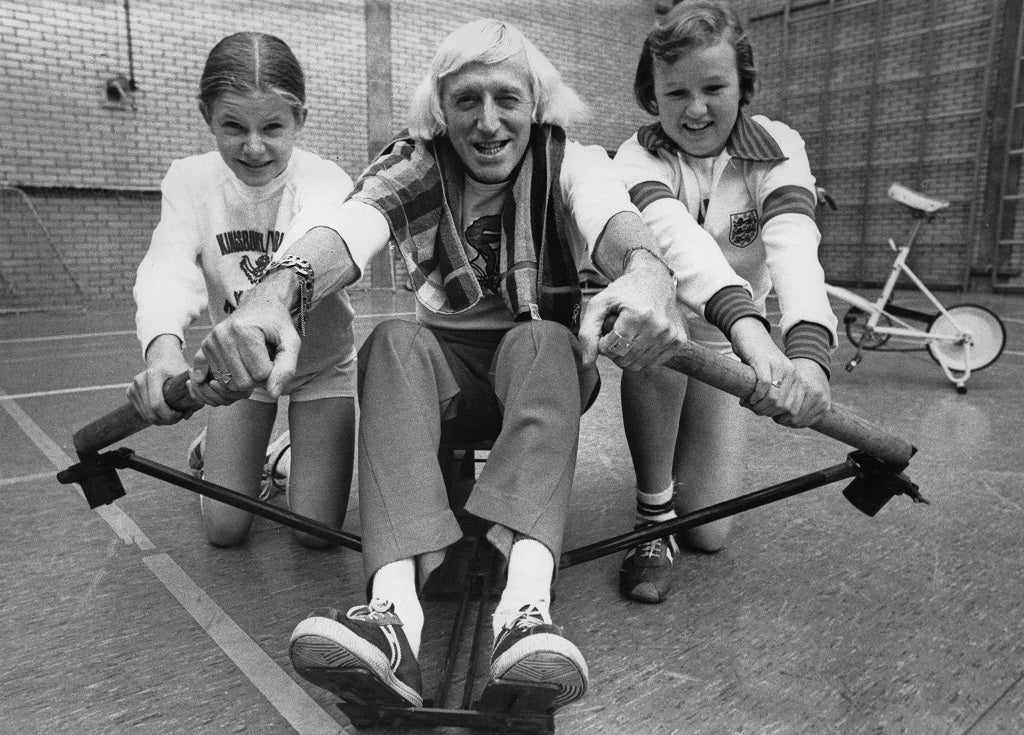Keep some perspective, this Savile crisis isn't the worst to hit the BBC
Remember the dispute that laid bare decisions that took the country to war?


Your support helps us to tell the story
From reproductive rights to climate change to Big Tech, The Independent is on the ground when the story is developing. Whether it's investigating the financials of Elon Musk's pro-Trump PAC or producing our latest documentary, 'The A Word', which shines a light on the American women fighting for reproductive rights, we know how important it is to parse out the facts from the messaging.
At such a critical moment in US history, we need reporters on the ground. Your donation allows us to keep sending journalists to speak to both sides of the story.
The Independent is trusted by Americans across the entire political spectrum. And unlike many other quality news outlets, we choose not to lock Americans out of our reporting and analysis with paywalls. We believe quality journalism should be available to everyone, paid for by those who can afford it.
Your support makes all the difference.Journalists are trained to have an ear for the soundbite, so it's not surprising that they may occasionally use one themselves. I have no doubt that John Simpson, pictured, the redoubtable television reporter, knew what he was doing when he said that the Jimmy Savile scandal was "the worst crisis I can remember in my nearly 50 years at the BBC".
Ever since, the saga has, routinely and unquestioningly, been referred to as the corporation's biggest trial for half a century. Really? Bigger than the crisis which resulted in the departure of both its chairman and the most popular and effective director-general in living memory? More profound than that which left the BBC on a collision course with the government of the day? Of wider importance than a dispute that laid bare decisions that took the country to war?
I don't want to make light of the revelations surrounding Savile, or of the journalistic failings that sparked the current furore, but we should get things in perspective. The BBC is one of a number of institutions facing serious questions, but it seems to be the only one seeking to come up with answers.
I don't see the prison service or the NHS opening themselves up to such rigorous internal and external scrutiny, and yet the evidence would suggest that Savile's abuse took place on their premises, too. The problem is that the BBC has ideological and commercial opponents. Also, it does seem to take a masochistic pleasure in examining its own entrails.
So, the other night, at the very same time, we had Panorama on Newsnight on BBC1, and Newsnight on Newsnight on BBC2. And there were accusations of internecine warfare when the radio presenter Victoria Derbyshire suggested that Peter Rippon, the Newsnight editor, had been hung out to dry by his bosses over what she termed "a poor editorial call".
I have a good deal of sympathy with this. Having had some experience of an editor's chair myself, I interpret the chain of events leading up to the pulling of the Savile investigation as firmly indicative of pressure being exerted from above. It simply does not stand to reason that Rippon would have gone so cold, so quickly, on the Savile story unless he was being leant on.
The proclaimed culture of autonomy at the Beeb may give individual editors a lot of elbow room, but it also means that those higher up the food chain can absolve themselves of responsibility.
Greg Dyke paid the ultimate price for a news report broadcast on Today before he'd even got out of bed. He carried the can as editor-in-chief, the position held by Mark Thompson when Newsnight killed the Savile story.
The issue of mismanagement pales by comparison with the wider scandal of abuse, neglect and exploitation, but I get the feeling we have a long way to go before we get to the truth of the biggest crisis to hit the BBC since the last one.
Join our commenting forum
Join thought-provoking conversations, follow other Independent readers and see their replies
0Comments